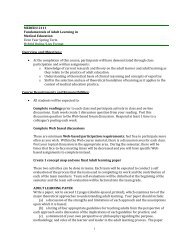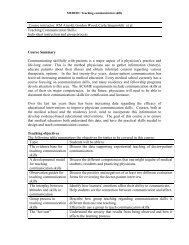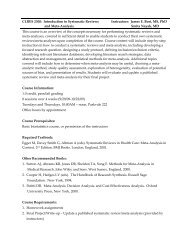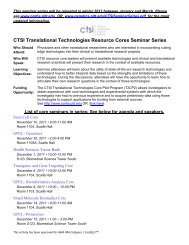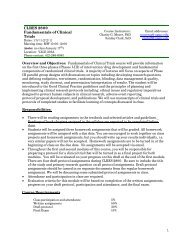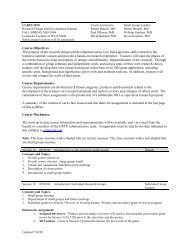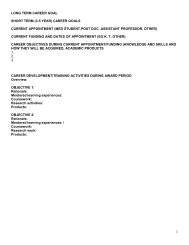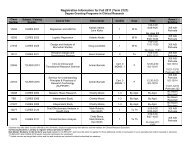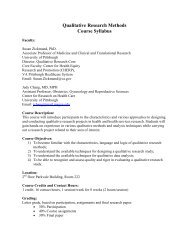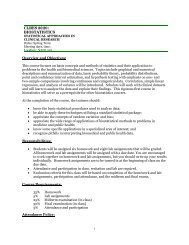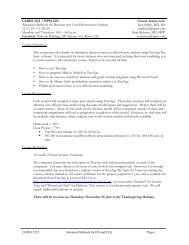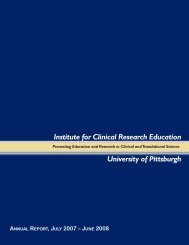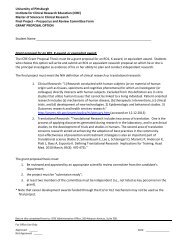Student Handbook - Institute for Clinical Research Education
Student Handbook - Institute for Clinical Research Education
Student Handbook - Institute for Clinical Research Education
Create successful ePaper yourself
Turn your PDF publications into a flip-book with our unique Google optimized e-Paper software.
XVII. Appendix G: <strong>Student</strong> Obligations<br />
A student has an obligation to exhibit honesty and to respect the ethical standards of the profession<br />
in carrying out his or her academic assignments. Without limiting the application of this principle, a<br />
student may be found to have violated this obligation if he or she:<br />
1. Refers during an academic evaluation to materials or sources, or employs devices, not<br />
authorized by the faculty member.<br />
2. Provides assistance during an academic evaluation to another person in a manner not<br />
authorized by the faculty member.<br />
3. Receives assistance during an academic evaluation from another person in a manner not<br />
authorized by the faculty member.<br />
4. Engages in unauthorized possession, buying, selling, obtaining, or use of any materials intended<br />
to be used as an instrument of academic evaluation in advance of its administration.<br />
5. Acts as a substitute <strong>for</strong> another person in any academic evaluation process.<br />
6. Utilizes a substitute in any academic evaluation proceeding.<br />
7. Practices any <strong>for</strong>m of deceit in an academic evaluation proceeding.<br />
8. Depends on the aid of others in a manner expressly prohibited by the faculty member, in the<br />
research, preparation, creation, writing, per<strong>for</strong>ming, or publication of work to be submitted <strong>for</strong><br />
academic credit or evaluation.<br />
9. Provides aid to another person, knowing such aid is expressly prohibited by the instructor, in<br />
the research, preparation, creation, writing, per<strong>for</strong>ming, or publication of work to be submitted<br />
<strong>for</strong> academic credit or evaluation.<br />
10. Presents as one's own, <strong>for</strong> academic evaluation, the ideas, representations, or words of another<br />
person or persons without customary and proper acknowledgment of sources.<br />
11. Submits the work of another person in a manner which represents the work to be one's own.<br />
12. Knowingly permits one's work to be submitted by another person without the faculty member's<br />
authorization.<br />
13. Attempts to influence or change one's academic evaluation, grade, or record <strong>for</strong> reasons other<br />
than achievement or merit.<br />
14. Engages, during a class (or examination) session in which one is a student, in conduct which is<br />
so disruptive as to infringe upon the rights of the faculty member or fellow students.<br />
15. Fails to cooperate, if called upon, in the investigation or disposition of any allegation of<br />
dishonesty pertaining to another student.<br />
* Adapted from the University of Pittsburgh’s Suggested Code of Conduct:<br />
http://www.provost.pitt.edu/info/aistudcode1.html<br />
28



